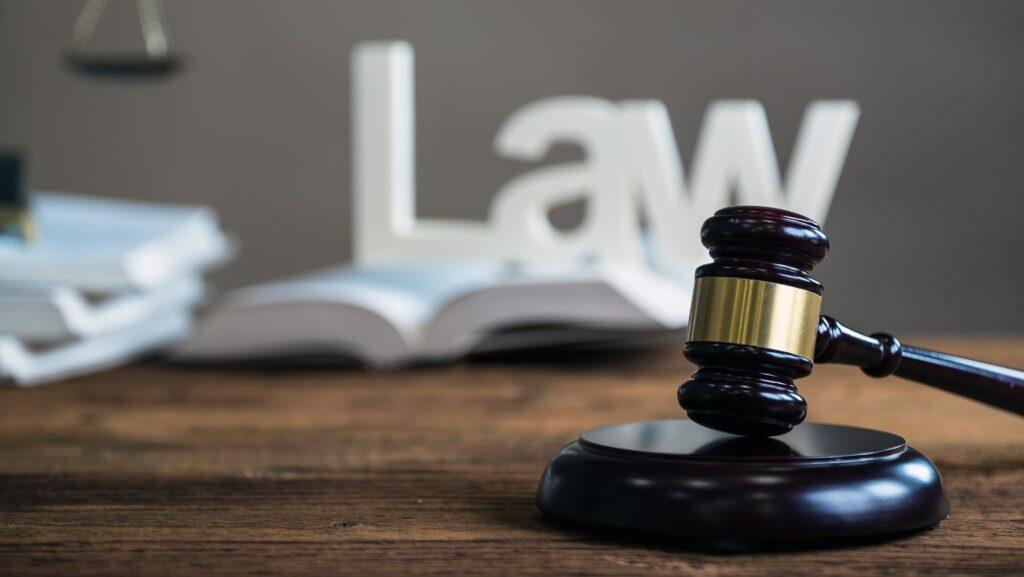How Can You Become a Lawyer in the USA? If you’ve ever questioned yourself, this step-by-step guide will be your trusted companion, providing valuable insights and actionable steps to turn your aspirations into reality.
Whether you are a recent high school graduate or seeking a career change, this in-depth reference will lead you through the process, illuminating the path to becoming a Lawyer in the US.
Lawyers are professionals who provide legal advice and representation for individuals, businesses and organizations. They may specialize in different areas of law, such as criminal law, family law, corporate law, environmental law or tax law.

Let’s dive in and explore the transformative steps that will shape your future as a legal professional:
- Step 1: Understanding the Legal Profession
The legal profession plays a crucial role in society, advocating for justice, protecting rights, and resolving disputes. Aspiring lawyers must genuinely interest themselves in the law and commit to making a positive impact in their communities. - Step 2: Fulfilling Educational Requirements
Start your journey by obtaining a bachelor’s degree from a four-year college or university. You can major in any subject that interests you and prepares you for law school. Some common majors are English, philosophy, economics, business, psychology, criminal justice and political science. You should also keep a high GPA and take courses that improve your communication, research, analytical and problem-solving skills. For patent law, you need a scientific or technical major. - Step 3: Preparing for Law School
The LSAT is a common law school exam that tests your reading, logic and analysis skills. It has a 120-180 score range, with 150 as average. Some law schools also take the GRE, a general exam that tests your verbal, math and writing skills. It has a 130-170 score range for each section, with 150 as average. Prepare well for these exams and take them a year before applying to law school. Your scores matter for admission. - Step 4: Applying to Law Schools
Research various law schools and select those that align with your career goals and interests. Craft a compelling personal statement and gather strong recommendation letters to support your application. - Step 5: Embarking on the Law School Journey
The next three years will challenge and stimulate you academically. Embrace your courses and actively participate in discussions and activities to make the most of your time in law school. During your law school journey, seek internships and practical experience opportunities to gain exposure to different legal fields. This hands-on experience will be invaluable for your future legal career. - Step 6: Passing the Bar Exam
The bar exam is the final step to become a lawyer in the USA. It is a state-specific exam that tests your law knowledge and application skills. The exam includes multiple-choice questions, essays and performance tests on topics such as evidence, ethics, constitutional law, contracts, torts and criminal law. Each state has its own rules and requirements for the exam. You should check with the state bar and prepare well by taking courses and practicing with past exams. - Step 7: Becoming a Licensed Attorney
To practice law in your state, you need to apply for a license after passing the bar exam. You may need to fill out a form, pay a fee and pass a background check to get your license. Then you can work as an attorney. You can work for a firm, a government, a non-profit or yourself. You can also get more education or specialization by earning an LL.M. or an S.J.D. degree. - Step 8: Building a Legal Career
With your law license in hand, embark on your legal career. Consider different paths, such as joining a law firm, pursuing public interest work, or working in government. Networking plays a pivotal role in the legal profession, so connecting with fellow professionals and mentors opens doors to various opportunities.
So, these are the vital point to remember in becoming a Lawyer in the USA. The path to becoming a lawyer requires perseverance, continuous learning, and an unwavering desire to create a better world.
Some Law college examples in the USA:
-Harvard University
-Stanford University
-Yale Law Firms
-Columbia University
-University of Chicago
-New York University (NYU)
-University of Michigan
-University of California, Berkeley (UC Berkeley)
-Duke University
You’ve now unlocked the roadmap to becoming a lawyer in the USA. By following this ultimate step-by-step guide, you’ve gained invaluable insights and actionable steps that will pave the way to your legal dreams.
Remember, the legal profession is not just a job; it’s a calling to advocate for justice and make a positive impact on society. Embrace your passion, dedication, and commitment to excellence as you embark on this transformative journey.
Read More: How many years of college are required to be a criminal lawyer?






